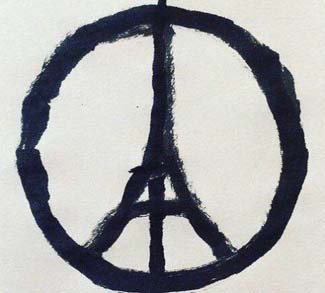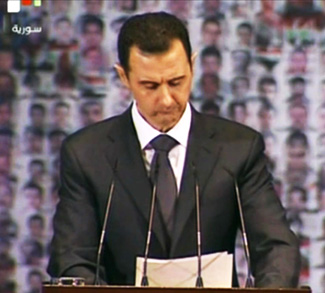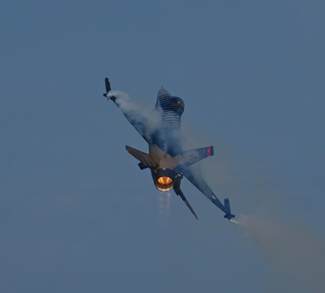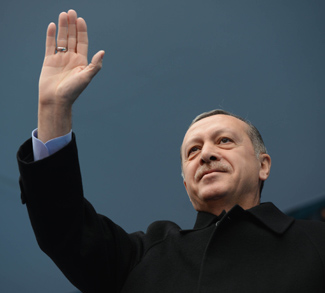Last month’s attacks in Beirut and Paris, among others, drew large – though uneven – condemnation from the global community. This united solidarity front has not translated into united action by international decision-makers and their governments. Instead, multiple military-focused responses to the attacks have jeopardized any serious effort to counter terrorism.
In the wake of the events in Sinai, Beirut, Paris, Bamako, and Tunis, the world’s reaction didn’t fail to come, although far more vehemently for the French people, with statements of mourning by leaders, words of condemnation by Muslim groups, and messages of solidarity with the victims.
Despite the initial shock, the ‘’We are all French, Arab, Russian’’ slogans, and the renewed resolve by the international community to stand up to ISIS, the world is far from united or successful in its fight against terrorism. Though united in disgust, differing actions are being taken to confront the violence.
In the weeks following the Paris attacks, world leaders pledged further support, calling for military retaliation and more resources to fight the war on terror. Within the political scene of Western countries, opposing discourses surfaced right away along rival party lines, with Muslims, leftists, and liberals defending Islam and right-wingers maintaining a strong anti-migration rhetoric that discriminates against, and even demonizes, Muslims.
The string of attacks last month has triggered increased military attacks against ISIS facilities, supply lines, and leaders, and forced a recalculation of what more can be done to prevent future strikes.
In the aftermath of the attacks in Paris, which French President Hollande described as an “act of war,” US President Obama vowed: “We stand prepared and ready to provide whatever assistance that the government and the people of France need.”
One very crucial point Western powers are still stubbornly missing is this is not just about ISIS. In contrast, counter-terror efforts need to be extended to al-Nusra, Al-Qaeda and other jihadist groups in Syria as much as in Iraq.
Amid much debate on further military intervention on Syria, France’s decision to launch retaliatory airstrikes against ISIS targets came swiftly, followed by the UK’s move to carry out aerial attacks targeting ISIS militants just hours after the British parliament voted for action in Syria.
That only amounted to intensified airstrikes against ISIS positions by the US and coalition military forces, after an over year-long bombing campaign in Syria that has done little to defeat the terrorist group or limit its power.
Russian officials, once again, advocated for joint efforts in the fight against terrorism on a “firm international basis,” and renewed their call for Western powers to work with them against terrorist elements in Syria.
Such an alliance between Russia and the U.S. with its European allies however seems very unlikely, as Russians and Western leaders have been divided on many issues, including on the war in Syria, namely on whether a peace process can endure with Assad remaining as president.
What’s more, world leaders at the G20 summit in Turkey opened up to Russian president Putin to reach a deal to unite against terrorism, and end the Syrian war, while trying to persuade him to change course in Syria. British PM Cameron urged Putin to stop bombing Syrian (so-called) ‘’moderate opposition’’ to the Assad regime, and instead focus on ISIS.
In Vienna, US Secretary of State Kerry told his Russian counterpart Lavrov that Russia would have to change its strategy and its air operations to make any deeper military coordination against terror groups in Syria possible.
One very crucial point Western powers are still stubbornly missing is this is not just about ISIS. In contrast, counter-terror efforts need to be extended to al-Nusra, Al-Qaeda and other jihadist groups in Syria as much as in Iraq.
If the global community is not united against terrorism, one cannot expect it to be ready to fight ISIS or any other extremist groups. World powers are stuck on clashing positions, in line with their strategic and geopolitical objectives in the Arab region amid proxy conflicts raging from Syria to Yemen.
Politicians from left to right, rather than giving the November attacks due seriousness, are framing them within narrow political interests and judging how their respective opponents will fight terror.
The world’s failure to effectively confront terrorism comes from a collective inability to focus on the task. And the task certainly does not call for military-heavy responses; but rather serious actions to address the underlying political, economic, and social factors that create and maintain terrorist organizations. Although known to world leaders, the non-military course has never really been attempted.
It’s time for foreign and Middle Eastern powers seeking to fight terrorism to not just acknowledge, but implement such soft-power actions, and form a broad anti-terrorism front aimed at eradicating root causes. That involves targeting and reforming the underlying drivers of discontent that push young people, in Arab countries and abroad, into the embrace of radical movements, namely anger at unemployment, marginalization, deprivation, and hopelessness about improving their future well-being.
The same goes for efforts to restrict financial channels that fund terrorism. There needs to be genuine willingness to act fast and firmly to dismantle funding networks of militant groups. Again, that doesn’t apply to ISIS only, as Egypt and the U.S. discussed on Sunday with reference to ISIS’s access to financial resources.
Unless the focus of the collective response shifts from military actions, extremist groups will not be stopped; they will in fact continue to carry out terror attacks around the world, particularly against those Western countries involved in coalition air strikes. Similarly, a Saudi-led Islamic military coalition to combat terrorism, which formation was announced on Tuesday, will not help the case.
From the U.S. to Europe and the Middle East, powers seem to only agree –with different strategies and tactics- on the need to expand action against terrorism. Why is this “unity” always in the military realm, though?
If the U.S., UK, European allies and Russia share the same interest of ensuring citizens are safe in their own countries, they need to rethink their bombing campaign in Syria and Iraq, and redirect critical efforts towards stemming the flow of foreign terrorist fighters, and preventing and suppressing the financing of terrorism.
Parallel to that, what is crucially needed is the establishing of a modern Islamic culture that engages the Muslim youth and prevents them from drifting toward radicalism. Repeated condemnations by Muslims of Islamist violence, or statements reminding that terrorist attacks do not represent Islam are ineffective besides insufficient.
The Western world and the Muslim world need to unite in the face of terrorism. Otherwise, the number of foreign fighters will keep growing fast, civilian deaths will increase under bombs in Syria and Iraq, forced migrations will generate millions of people fleeing wars, and we will continue to fight each other instead of fighting terror.
The opinions, beliefs, and viewpoints expressed by the authors are theirs alone and don’t reflect any official position of Geopoliticalmonitor.com.




